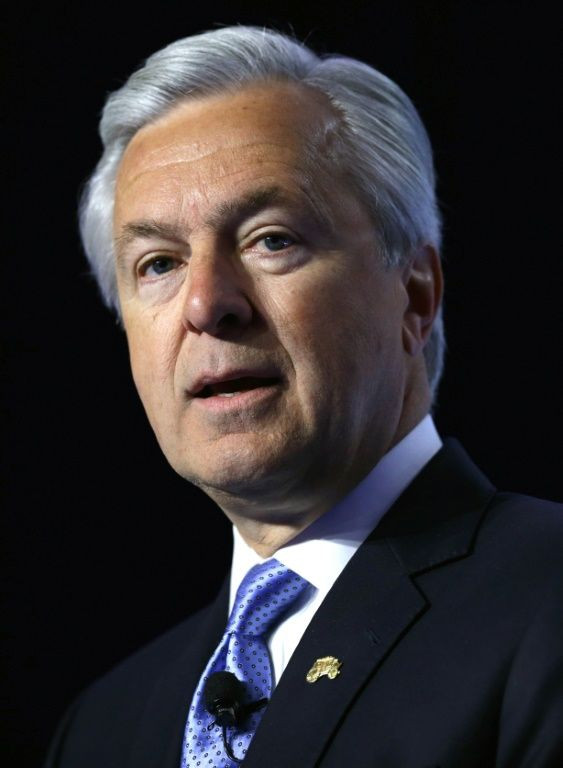US Regulator Fines Ex-Wells Fargo CEO $17.5 Mn Over Fake Accounts

US authorities on Thursday fined former Wells Fargo chief executive John Stumpf $17.5 million over the bank's fake accounts scandal, an unusually punitive action against a former corporate leader.
A US banking regulator settled with Stumpf and two other former executives, while announcing charges against five other former officials whose failure to perform their duties allegedly "contributed to the bank's systemic problems," the agency said.
The scandal dates back years, when Wells Fargo employees from 2002 to 2016, opened millions of deposit and credit card accounts without the approval or knowledge of their customers.
The penalties imposed on Stumpf by the Office of Comptroller of the Currency include a lifetime ban on working in the banking industry, and are far more severe than anything CEOs faced after the 2008 financial crisis and may be unprecedented, legal experts said.
The crackdown sends "a general message to the banking industry that senior people need to be vigilant against compliance breakdowns and if they don't, they may need to be writing checks," said Geoffrey Parsons Miller, a professor at New York University School of Law and an expert in compliance.

Wells Fargo executives set up a corrupt system based around unrealistic goals in the community bank, that linked employee compensation to the opening up new accounts, causing "hundreds of thousands of employees to engage in numerous types of sales practices misconduct," the OCC said in a complaint.
"Community bank management intimidated and badgered employees to meet unattainable sales goals year after year, including by monitoring employees daily or hourly and reporting their sales performance to their managers" and "subjecting employees to a hazing-like abuse," the complaint said.
Employees "could engage in sales practices misconduct -- much of which was illegal -- to meet their goals, or they could struggle to meet their goals and face adverse consequences, including losing their jobs."
The OCC hit the former head of community banking, Carrie Tolstedt, with a $25 million penalty, while imposing a $5 million penalty on Claudia Russ Anderson, a former risk officer who allegedly made false and misleading statements and "actively obstructed the OCC's examinations of the bank's sales practices."
This officials can challenge the allegations through an administrative law process, the OCC said.
The agency said Stumpf failed to adequately oversee employees or heed "numerous warning signs" about troubles, and "as CEO he ultimately bears responsibility for the Community Bank's systemic problem."
Stumpf said Tolstedt and Russ Anderson bore "significant responsibility" for the scandal in sworn testimony to the OCC.
Tolstedt and Russ Anderson asserted their Fifth Amendment right against self-incrimination and refused to answer substantive questions, the OCC said.
Stumpf retired from Wells Fargo in October 2016, shortly after the scandal broke. In April 2017, Wells Fargo "clawed back" $75 million in compensation from Stumpf and Tolstedt.
Since the scandal broke, Wells Fargo has reformed its compensation practices and no longer bases employee pay on selling additional accounts to customers.
The bank has replaced its chief executive twice, most recently with former Bank of New York Mellon chief Charlie Scharf, who has signaled he plans significant changes to try to win back the trust of regulators.
Scharf said the OCC probe underscored the "flawed" nature of the business model at a time when the company "did not have in place the appropriate people, structure, processes, controls, or culture to prevent the inappropriate conduct," according to a message to employees.
"This was inexcusable. Our customers and you all deserved more from the leadership of this Company," Scharf said, adding that the bank will not pay any compensation to former bank officials targeted by the OCC while it reviews the finding.
© Copyright AFP {{Year}}. All rights reserved.





















